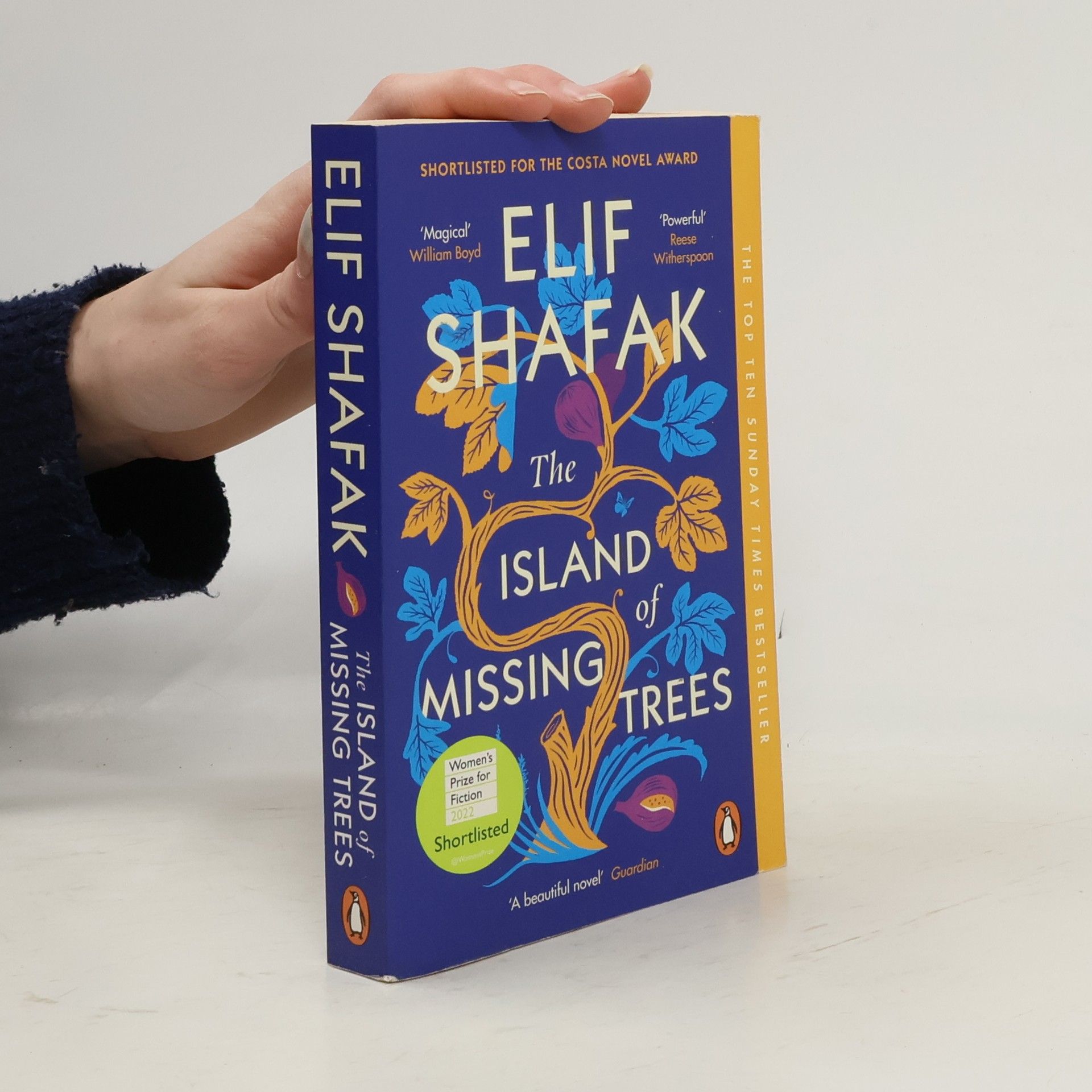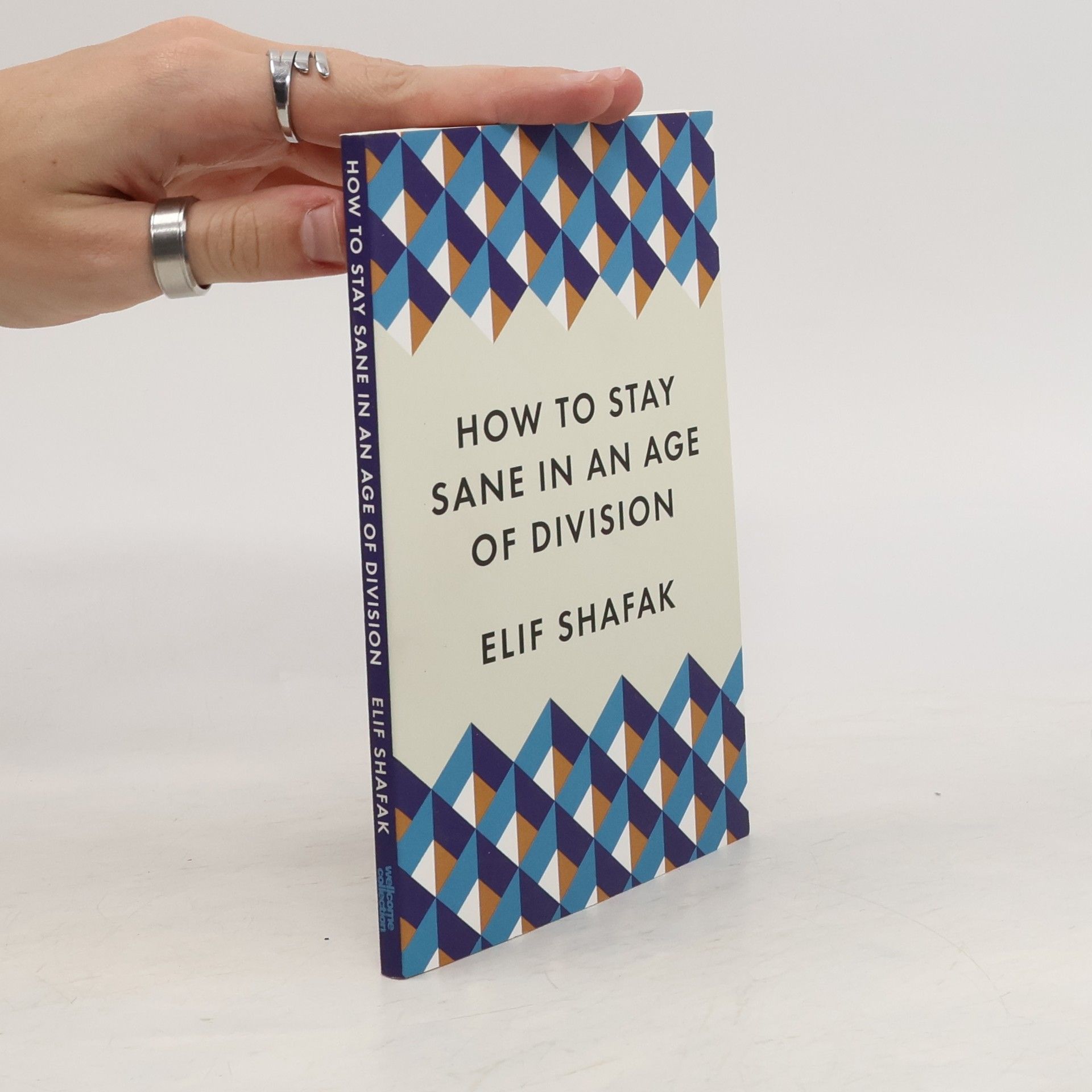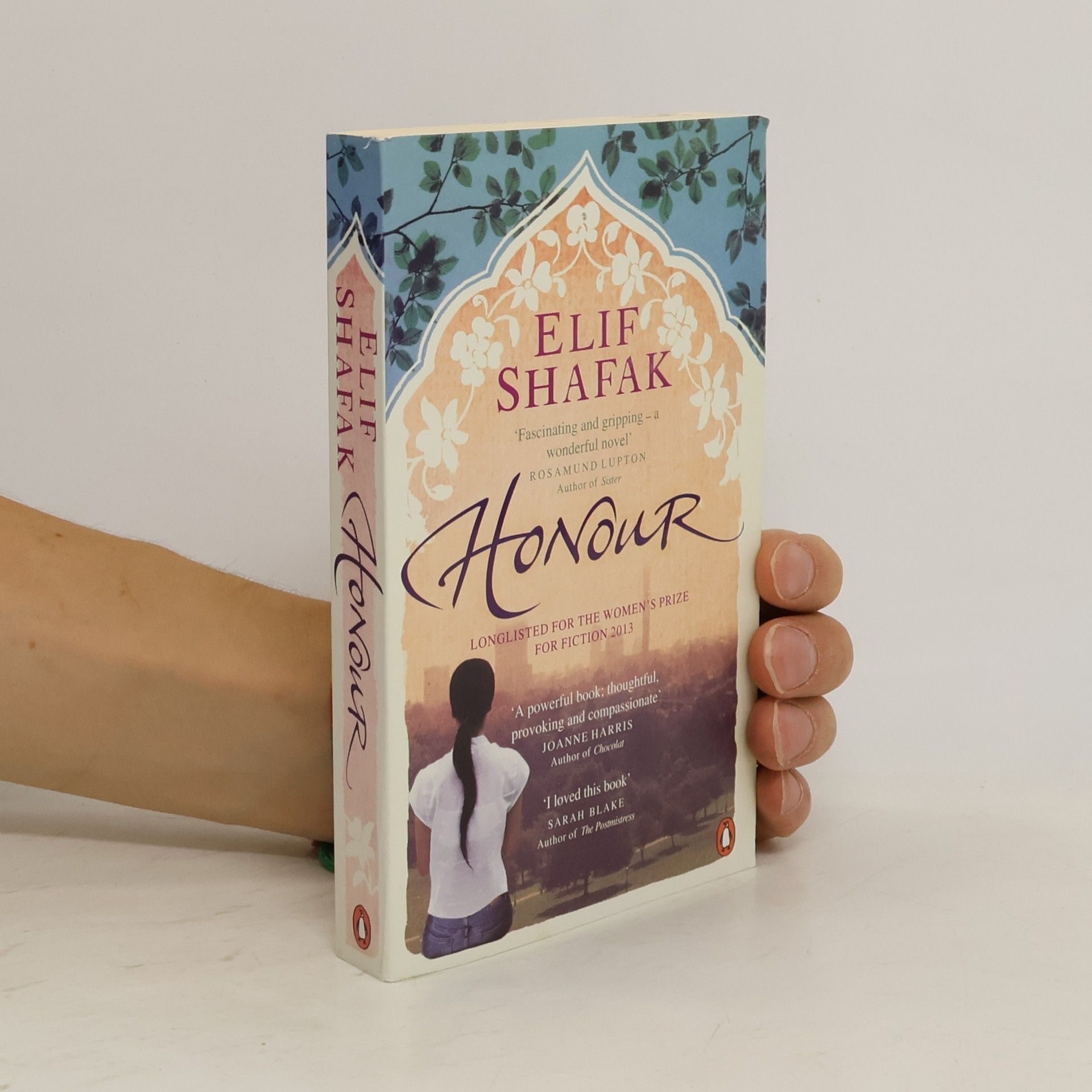Er stromen rivieren in de lucht
- 475bladzijden
- 17 uur lezen
Elif Shafak is een gevierde Brits-Turkse romanschrijfster wiens werk wijdverspreid wordt gelezen en diep resoneert. Ze schrijft zowel in het Turks als in het Engels en creëert verhalen die de complexiteit van identiteit, cultuur en politiek onderzoeken met een scherp oog voor taalkundige nuances en emotionele diepgang. Haar proza wordt gekenmerkt door een rijk stilistisch palet, waarbij ze de kruispunten van diverse ervaringen verkent en een bedachtzame betrokkenheid bij de menselijke conditie bevordert. Als een vooraanstaand pleitbezorger van sociale rechtvaardigheid doorbreken Shafaks geschriften en openbare toespraken consequent grenzen en bevorderen ze kritische dialoog.







'My mother died twice. I promised myself I would not let her story be forgotten . . .' Pembe and Adem Toprak leave Turkey for London. There they make new lives for their family. Yet the traditions and beliefs of their home come with them - carried in the blood of their children, Iskender and Esma. Trapped by past mistakes, the Toprak children find their lives torn apart and transformed by a brutal and chilling crime. Set in Turkey and London in the 1970s, Honour explores pain and loss, loyalty and betrayal, the clash of tradition and modernity, as well as the love and heartbreak that can tear any family apart. Praise for Elif Shafak: 'Vivid storytelling, a gripping novel . . . scenes blaze with the force of parable.' Sunday Telegraph 'A stunning novel. Exotic, evocative and utterly gripping.' The Times 'Moving, subtle and ultimately hopeful, Honour is further proof that Shafak is the most exciting Turkish novelist to reach western readers in years.' Irish Times 'Extraordinarily skilfully crafted . . . with Shakespearean twists and turns, omens and enigmas, prophecies and destinies.' Independent
'In the first minute following her death, Tequila Leila's consciousness began to ebb, slowly and steadily, like a tide receding from the shore. Her brain cells, having run out of blood, were now completely deprived of oxygen. But they did not shut down. Not right away...' For Leila, each minute after her death brings a sensuous memory- the taste of spiced goat stew, sacrificed by her father to celebrate the long-awaited birth of a son; the sight of bubbling vats of lemon and sugar which the women use to wax their legs while the men attend mosque; the scent of cardamom coffee that Leila shares with a handsome student in the brothel where she works. Each memory, too, recalls the friends she made at each key moment in her life - friends who are now desperately trying to find her. . .
In this lyrical, exuberant tale, acclaimed Turkish author Elif Shafak, author of The Island of Missing Trees (a Reese's Book Club Pick), incarnates Rumi's timeless message of love Ella Rubenstein is forty years old and unhappily married when she takes a job as a reader for a literary agent. Her first assignment is to read and report on Sweet Blasphemy, a novel written by a man named Aziz Zahara. Ella is mesmerized by Zahara's tale of Shams of Tabriz's search for Rumi and the dervish's role in transforming the successful but unhappy cleric into a committed mystic, passionate poet, and advocate of love. She is also taken with Shams's lessons, or rules, that offer insight into an ancient philosophy based on the unity of all people and religions, and the presence of love in each and every one of us. As she reads on, she realizes that Rumi's story mirrors her own and that Zahara—like Shams—has come to set her free. The Forty Rules of Love unfolds two tantalizing parallel narratives—one contemporary and the other set in the thirteenth century, when Rumi encountered his spiritual mentor, Shams, the whirling dervish—that together explore the enduring power of Rumi's work.
It feels like the world is falling apart. So how do we keep hold of our optimism? How do we nurture the parts of ourselves that hope, trust and believe in something better? And how can we stay sane in this world of division?In this beautifully written and illuminating polemic, Booker Prize nominee Elif Shafak reflects on our age of pessimism, when emotions guide and misguide our politics, and misinformation and fear are the norm. A tender, uplifting plea for optimism, Shafak draws on her own memories and delves into the power of stories to reveal how writing can nurture democracy, tolerance and progress. And in the process, she answers one of the most urgent questions of our time.
In 1974 Cyprus, two teenagers from opposing sides of a divided land meet in secret at a taverna, a refuge from the turmoil surrounding them. Kostas, a Greek Christian, and Defne, a Turkish Muslim, find solace in the vibrant atmosphere filled with the best food, music, and wine. The taverna, adorned with garlic, chili peppers, and wild herbs, allows them to escape the harsh realities of their world, even if just for a few hours. A fig tree growing through the roof stands as a silent witness to their joyful meetings and the inevitable separation that war will bring. Decades later, in north London, sixteen-year-old Ada Kazantzakis longs to understand her family's past, having never visited the island of her parents' birth. She grapples with the weight of secrets and silence, her only link to her heritage being a Ficus Carica in her garden. The narrative weaves together themes of belonging, identity, love, trauma, and the destruction of nature, ultimately exploring the journey toward renewal. Through this rich and magical tale, the author captures the enduring impact of memory and the quest for connection across generations.
The stunning, timely new novel from the acclaimed, internationally bestselling author follows Peri, a married, wealthy, beautiful Turkish woman, on her way to a dinner party in Istanbul. As a beggar snatches her handbag, a photograph falls out—a polaroid of three young women and their university professor, a relic from a past Peri has tried to forget. Set over an evening in contemporary Istanbul, the story unfolds as Peri navigates the tensions between East and West, religious and secular, rich and poor. Amidst the opulence of the dinner, terrorist attacks erupt across the city. Competing in Peri's mind are memories evoked by the polaroid, recalling her time at Oxford University, where she befriended the charming Shirin, a fully assimilated Iranian, and Mona, a devout Egyptian-American. Their debates on Islam and feminism center around the charismatic Professor Azur, who teaches divinity in unconventional ways. As the attacks draw nearer, Peri reflects on the scandal that ultimately tore them apart. Elif Shafak, the number one bestselling novelist in Turkey, delivers a rich and moving narrative that humanizes a profound sea change in the modern world.
'Tell me. What would be the right gift to send to a man who has everything?' 'An elephant, my Lord. The biggest animal on the land.' Sixteenth century Istanbul: a young stowaway arrives in the city bearing an extraordinary gift for the Sultan. The boy has no wordly possessions to his name except Chota, a rare and valuable white elephant destined for the palace menagerie. So begins an epic adventure that will see young Jahan rise from his lowly origins to the highest ranks of the Sultan's court. Along the way he will meet deceitful courtiers and false friends, gypsies, animal tamers, and the beautiful, mischievous Princess Mihrimah. He will journey on Chota's back to the furthest corners of the Sultan's kingdom and back again. And one day he will catch the eye of the royal architect, Sinan, a chance encounter destined to change Jahan's fortunes forever. Filled with the scents, sounds and sights of the Ottoman Empire, when Istanbul was the teeming centre of civilisation, The Architect's Apprentice is a magical, sweeping tale of one boy and his elephant caught up in a world of wonder and danger.
Ella Rubinstein has a husband, three teenage children, and a pleasant home. Everything that should make her confident and fulfilled. Yet there is an emptiness at the heart of Ella's life an emptiness once filled by love. So when Ella reads a manuscript about the thirteenth-century Sufi poet Rumi and Shams of Tabriz, and his forty rules of life and love, she is shocked out of herself. Turning her back on her family she embarks on a journey to meet the mysterious author of this work. It is a quest infused with Sufi mysticism and verse, taking Ella and us into an exotic world where faith and love are heartbreakingly explored...
'My mother died twice. I promised myself I would not let her story be forgotten'. And so begins the story of Esma a young Kurdish woman in London trying to come to terms with the terrible murder her brother has committed. Esma tells the story of her family stretching back three generations; back to her grandmother and the births of her mother and Aunt in a village on the edge of the Euphrates. Named Pembe and Jamila, meaning Pink and Beautiful rather than the names their mother wanted to call them, Destiny and Enough, the twin girls have very different futures ahead of them all of which will end in tragedy on a street in East London in 1978. A powerful, brilliant and moving account of murder, love and family set in a Kurdish village, Istanbul and London.